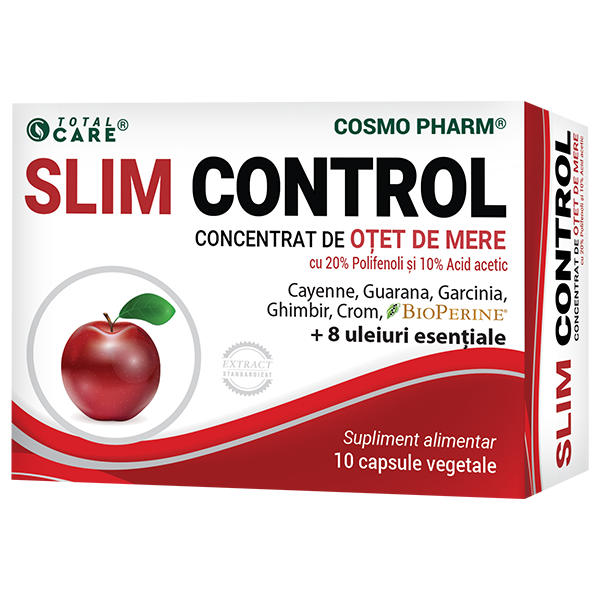Colon health is essential for overall wellness, especially in modern times when processed foods, sedentary lifestyles, and stress contribute to digestive disorders. Regular detoxification and proper bowel function are key to maintaining a healthy gut, immune system, and metabolic balance.
COLONOX COLON DETOX®, a dietary supplement developed by Cosmopharm, combines a curated blend of plant-based extracts known for their laxative, anti-inflammatory, prebiotic, and detoxifying properties. This formula aims to gently cleanse the colon, relieve constipation, reduce bloating, and support long-term digestive health.
This article provides a scientific overview of the key ingredients in COLONOX, explaining how each component works, the research behind it, and its role in supporting gastrointestinal function.
Composition COLONOX COLON DETOX®
- Psyllium (Plantago ovata) – Seed Husk Powder (150 mg)
Psyllium is a soluble fiber that absorbs water in the gut, forming a gel-like substance that aids in bowel movement. A study published in Verywell Health highlights psyllium’s role in alleviating constipation and promoting regular bowel movements. It also notes that psyllium helps reduce cholesterol levels and manage irritable bowel syndrome (IBS), particularly IBS-C .
Psyllium’s high fiber content increases stool bulk and water retention, stimulating peristalsis and easing bowel movements. It also acts as a prebiotic, fostering the growth of beneficial gut bacteria and enhancing gut health.
- Flaxseed (Linum usitatissimum) – Powder (150 mg)
Flaxseed is rich in omega-3 fatty acids, lignans, and fiber. A study published in Verywell Health discusses flaxseed’s potential health benefits, including aiding digestion and supporting heart health. The study also mentions that flaxseed’s bioactive compounds possess antioxidant, anti-inflammatory, and anticancer properties .
Flaxseed’s fiber content adds bulk to stool and facilitates its passage through the intestines. The omega-3 fatty acids and lignans in flaxseed possess anti-inflammatory properties, which can soothe the digestive tract and promote overall gut health.
- Cascara Sagrada (Rhamnus purshiana) – Bark Extract 10:1 (45 mg)
Cascara sagrada contains anthraquinone glycosides, which have been shown to stimulate bowel movements. According to an article on Verywell Health, cascara sagrada has powerful laxative effects due to its anthraquinone content. However, the article also notes that its safety for long-term use is questionable, and it should be used with caution .
The anthraquinone compounds in cascara sagrada stimulate peristalsis by increasing the motility of the colon and reducing water absorption, leading to softer stools and more frequent bowel movements.
- Aloe Vera (Aloe barbadensis) – Leaf Extract 200:1 (25 mg)
Aloe vera has been traditionally used for treating various gastrointestinal disorders. A review published in PMC discusses aloe vera’s potential as a treatment for constipation, highlighting its laxative properties and the presence of compounds like aloin and aloe-emodin that contribute to its effects .
Aloe vera’s anthraquinone compounds stimulate peristalsis and increase water content in the colon. Additionally, aloe vera has been shown to modulate neurotransmitters in the gut, enhancing intestinal motility and promoting regular bowel movements.
- Chicory (Cichorium intybus) – Root Extract (Inulin 10:1) (25 mg)
Inulin, a prebiotic fiber found in chicory root, has been studied for its effects on bowel function. A study published in PubMed investigated the impact of daily consumption of chicory native inulin on fecal levels of bifidobacteria, stool parameters, and quality of life in elderly constipated volunteers. The study found that inulin supplementation led to a significant increase in total fecal bacteria and bifidobacteria concentrations, as well as improved stool frequency and quality of life.
Inulin is fermented in the colon by beneficial bacteria, producing short-chain fatty acids that nourish colon cells and regulate bowel movements. It also increases stool frequency and softens stool consistency.
- Slippery Elm (Ulmus fulva) – Bark Extract 10:1 (25 mg)
Slippery elm has been used traditionally to soothe the gastrointestinal tract. A study published in PMC discusses slippery elm’s potential in treating gastrointestinal disorders, noting its mucilage content that can coat and protect the digestive tract.
The mucilage in slippery elm forms a protective layer over the mucous membranes of the gastrointestinal tract, reducing irritation and promoting healing. This soothing effect can alleviate symptoms of constipation and support overall digestive health.
- Buckthorn (Rhamnus frangula) – Bark Extract (25 mg)
Buckthorn bark contains anthraquinone compounds that have been studied for their laxative effects. According to an article on Brett Elliott, buckthorn bark stimulates bowel contractions and increases water content in the colon, aiding in the relief of constipation.
Similar to cascara sagrada, the anthraquinone compounds in buckthorn bark stimulate peristalsis and reduce water absorption in the colon, leading to softer stools and more frequent bowel movements.
- Triphala (Terminalia chebula, Terminalia bellerica, Phyllanthus emblica) – Fruit Extract 10:1 (25 mg)
Triphala is a traditional Ayurvedic formulation with potential health benefits. A study published in PMC discusses triphala’s applications in the treatment of functional gastrointestinal disorders, noting its antioxidant, anti-inflammatory, and gut-modulating properties.
Triphala’s components possess antioxidant and anti-inflammatory properties that can soothe the gastrointestinal tract. It also modulates gut microbiota, promoting the growth of beneficial bacteria and supporting overall digestive health.
- Papaya (Carica papaya) – Leaf Extract 10:1 (25 mg)
Papaya leaf extract has been traditionally used for digestive health. While specific studies on papaya leaf extract for digestive issues are limited, the fruit of the papaya plant contains enzymes like papain, which aid in protein digestion and may alleviate symptoms like bloating and indigestion. However, more research is needed to confirm these effects for the leaf extract specifically.
Papaya leaf contains enzymes such as papain, which help break down proteins into smaller peptides and amino acids, facilitating digestion. Additionally, the leaf is rich in fiber, which supports healthy bowel movements and overall digestive function.
- Fennel (Foeniculum vulgare) – Seed Powder (25 mg)
Fennel seeds have been studied for their role in digestive health. A study published in PubMed discusses fennel’s potential in treating irritable bowel syndrome (IBS), noting its ability to alleviate symptoms like bloating and abdominal discomfort. The study suggests that fennel’s antispasmodic properties may contribute to these effects.
Fennel seeds contain compounds that possess antispasmodic and carminative properties, helping to relax the muscles in the gastrointestinal tract and reduce bloating and discomfort. These properties make fennel a valuable ingredient in supporting digestive health.
- Peppermint (Mentha piperita) – Leaf Extract (25 mg)
Peppermint has been extensively studied for its effects on digestive health. A review published in PubMed examines peppermint oil’s role in treating irritable bowel syndrome (IBS), highlighting its ability to reduce symptoms like abdominal pain and bloating. The review concludes that peppermint oil is an effective treatment for IBS symptoms.
Peppermint contains menthol, which has antispasmodic properties that help relax the muscles in the gastrointestinal tract, reducing symptoms like cramping and bloating. Additionally, peppermint may help reduce gas and improve overall digestive comfort.
Potential Benefits of COLONOX COLON DETOX®
- Gentle Bowel Regulation
Psyllium, flaxseed, and cascara work synergistically to regulate bowel movements, relieve constipation, and reduce the need for stimulant laxatives. - Gut Lining Support
Slippery elm, aloe vera, and papaya soothe the intestinal mucosa and promote healing in cases of inflammation or damage. - Microbiota Balance and Prebiotic Action
Inulin from chicory and fibers from psyllium and flaxseed help nourish beneficial gut bacteria, supporting immune and digestive health. - Colon Detox and Antioxidant Effects
Triphala, papaya, and peppermint aid in neutralizing toxins and supporting natural detox pathways in the liver and colon.
Dosage and Administration
The recommended intake of COLONOX COLON DETOX® is 1 to 2 vegetarian capsules per day, taken during meals with a glass of water. For a complete colon detox regimen, a minimum of one month of continuous use is advised, with the full detox protocol ideally repeated every six months. The recommended duration is three months, administered twice per year. One bottle contains 30 capsules and lasts between 15 and 30 days, depending on the daily dosage.
To optimize detoxification, it is important to avoid acid-forming foods throughout and after the cleanse. These include processed foods, meat, fish, dairy products, soft drinks, refined sugar, salt, bread, and fried foods. A diet based on plant-based, high-fiber foods along with adequate hydration is encouraged to support intestinal health and enhance the product’s efficacy.
Safety and Quality Assurance
COLONOX COLON DETOX® is manufactured under GMP-certified conditions. The herbal extracts used are standardized for potency and undergo rigorous testing for purity and safety.
Precautions:
- Not recommended for pregnant or lactating women.
- Consult a healthcare provider before use, especially if you have a chronic GI condition or are on medications.
- Avoid long-term continuous use of stimulant laxatives like cascara without medical advice.
Conclusion
COLONOX COLON DETOX® offers a science-backed blend of herbal extracts that work together to cleanse the colon, regulate bowel function, and support gut health. With ingredients like psyllium, triphala, aloe, and fennel, this formula addresses both acute and chronic digestive imbalances.
While effective as part of a natural gut health routine, this supplement should be used alongside a balanced diet, hydration, and medical guidance where appropriate.
Sources
https://pubmed.ncbi.nlm.nih.gov/19048901/
https://www.ncbi.nlm.nih.gov/pmc/articles/PMC6566797/
https://www.ncbi.nlm.nih.gov/pmc/articles/PMC4867384/
https://pubmed.ncbi.nlm.nih.gov/24655963/
https://www.ncbi.nlm.nih.gov/pmc/articles/PMC4842679/
https://www.ncbi.nlm.nih.gov/pmc/articles/PMC6213153/
https://www.ncbi.nlm.nih.gov/pmc/articles/PMC6691940/
https://www.ncbi.nlm.nih.gov/pmc/articles/PMC5381313/
https://www.ncbi.nlm.nih.gov/pmc/articles/PMC4308045/
https://www.ncbi.nlm.nih.gov/pmc/articles/PMC6190469/
https://www.ncbi.nlm.nih.gov/pmc/articles/PMC4637227/


